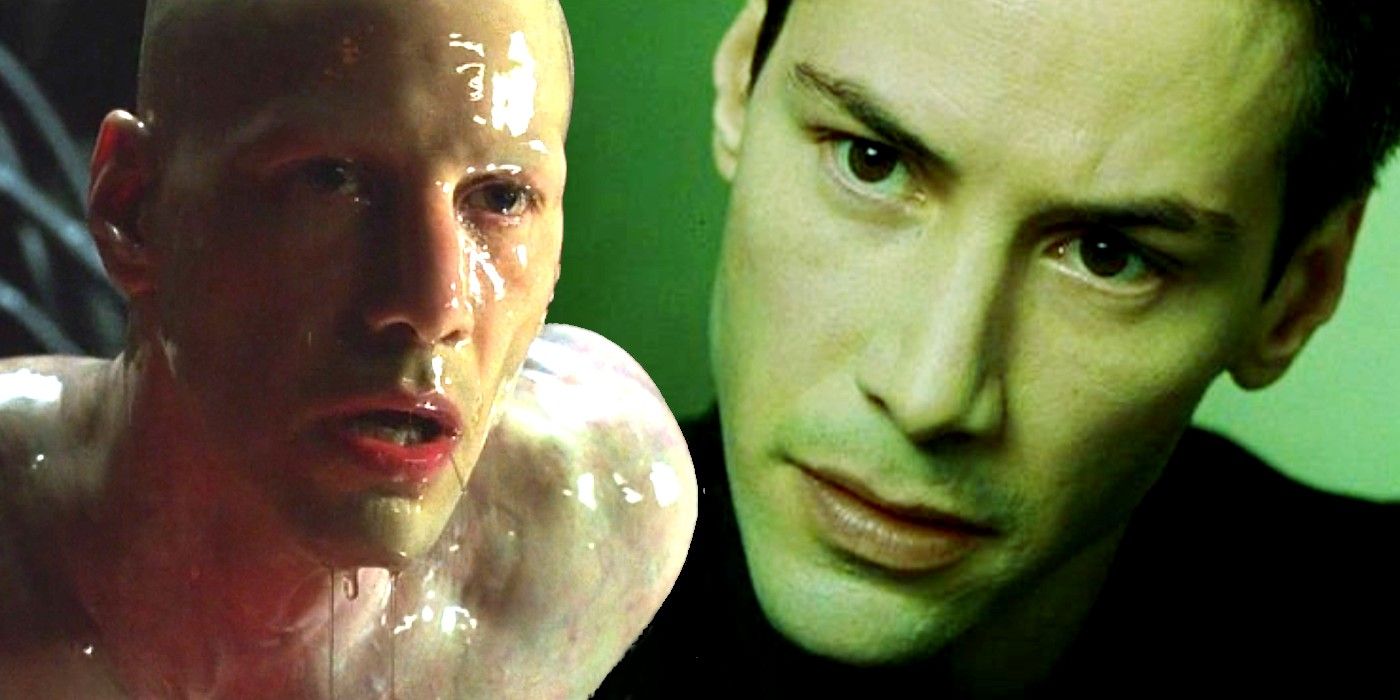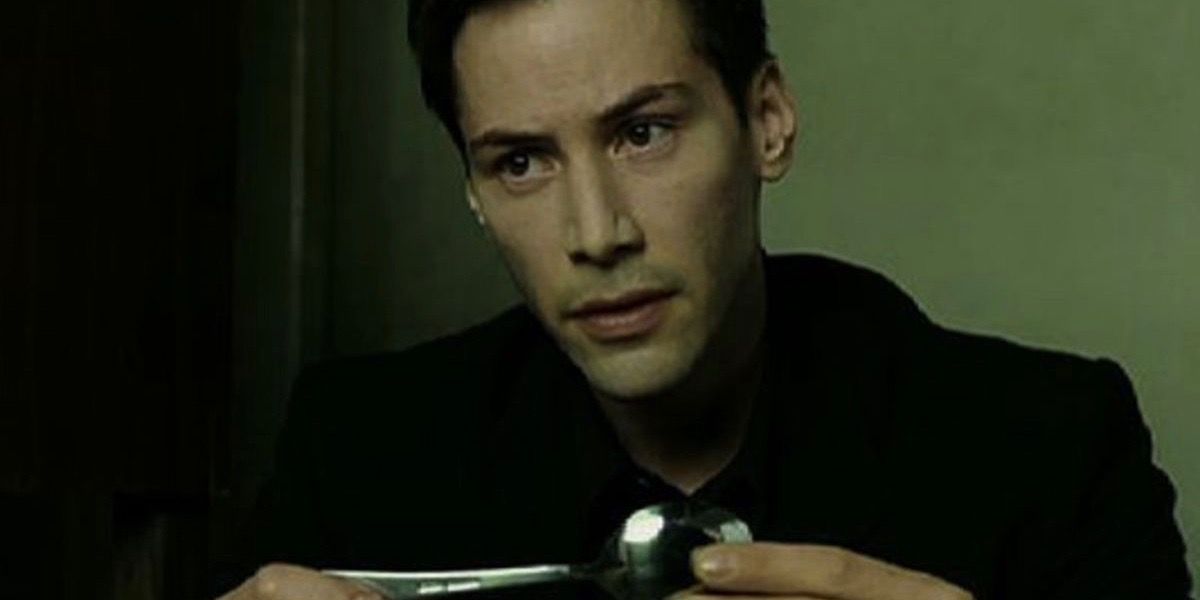The Matrix franchise centers around Keanu Reeves' portrayal of Neo, but there's more meaning behind why he calls himself that than just a simple anagram for "One," as in "The One." In 1999, the action sci-fi blockbuster blew audiences away with its merging of technology and existential awakening. In the film, Reeves plays Thomas Anderson, a man who works as a computer programmer (a profession he finds as unfulfilling as the rest of his current life) by day and tirelessly hunts for meaning--though he doesn't completely realize it--by night. He's a computer hacker in his spare time, and does this by scouring the internet to find the meaning of a recurring phrase ("The Matrix"), as well as the identity of someone named Morpheus.
Morpheus and his crew actually find Neo (who's still going by Thomas Anderson at this point), and his old view of reality is shattered. With Morpheus' help, he sees the world for what it really is: one of deception, facades, and control. They inform Neo that he's "The One," a messiah-like figure who has long been prophesized about. He's meant to finally end the ongoing battle between humanity and the hyperintelligent machines that currently have the upper hand, unbeknownst to most people. As Anderson joins their ranks and begins his training within the world as he now knows it, he takes on his former hacker alias of "Neo," and his path of "awakening" begins.
So, what's the meaning behind Neo? Obviously, it's an anagram. But, just like with many of The Matrix's powerful components - both big and small - there are extra layers of meaning. Interestingly enough, Neo's alias isn't the only part of his name with this type of subtext. "Neo" can also be found in his character's given last name, Anderson - in correct order, too. Similarly, "one" can be found in the full name Thomas Anderson. Both of these carefully-embedded titles refer to Neo's layers of pre-ordained duality. Also, Anderson, just like Agent Smith, has an impressively normal, run-of-the-mill name. When he still goes by this, he's still another anonymous cog in the machine of reality control.
And, of course, there's the actual name Neo. In Greek, "neo-" is a prefix meaning "new," just as his character is a new version of himself, looking to help forge a new world. And the meaningful name layers don't stop there! Thomas means "twin" in both Greek and Hebrew, again paralleling how Neo is both his original self and The One. And, in ancient Greek, "andros" is a form of the word "man." This means that the last name Anderson ("andros-son") is effectively dubbing Neo the "son of man," which is another Christ-like reference.
The level of intricacy in The Matrix's symbolism is astounding, and it certainly doesn't end with Neo. This also extends to the character of Trinity (another biblical reference, this time to the three-part Holy Trinity), as she's part of a mainly-three-person team with Morpheus and Neo. And there's Morpheus, who shares his name with the Greek god of dreams--just as he assists Neo, and the rest of the human race, in waking up from theirs. The Matrix's complex, modern twist on existential awakening is so heady that it still fries viewers' circuit boards today.


